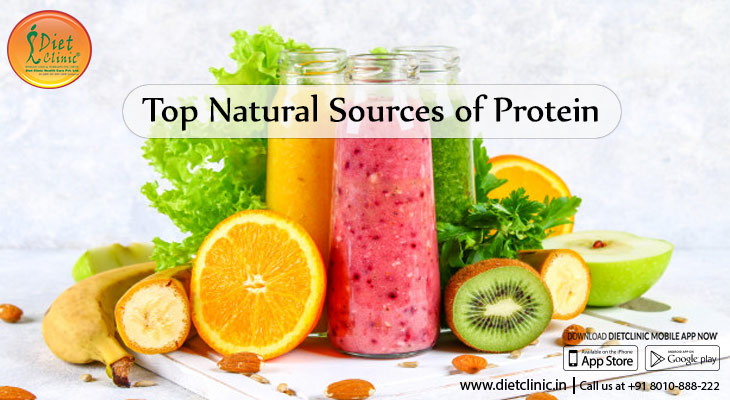
Dietician Sheela Seharawat
Protein is an essential part of any healthy diet, and it should be ensured that one gets enough of it in his / her daily food intake. It is an important nutrient that is responsible for many vital functions in our body, which includes build-up of body cells, tissues and muscles, especially people who are engaged in weight training, endurance sports and muscle developments. It is also essential as we grow older as it benefits from the effects of muscle loss with age.
Healthy sources of Protein
1. For a whole spectrum of protein , you can include sprouts, legumes, seeds, grains in your regular diet. Sprouts are high in enzymes, vitamins and minerals. You can rotate and eat different sprouts in each week and get complete protein.
2. Wheat grass has various health benefits. This contains vitamins, enzymes and rich in chlorophyll that oxygenates the blood.
3. Cottage cheese is a good source of protein. This contains amino acids such as glutamine, which supports the body metabolism.Kick-start your day with a quality diet plan.
The value of amino acids is determined by their nutritional values that differs in different foods. Fluid retention, anemia, shrinkage of muscular tissue are some of the common signs of protein deficiency in the human body. You can get these all essential proteins from animal as well as vegetable sources – here are some of the best sources of proteins:
Milk and yoghurt: milk is a great source of protein along with calcium. Drinks like chocolate milk is highly popular recovery food after exercises, as it contains carbohydrates along with proteins. A combination of casein and whey protein, yoghurt is also a great source of protein and a great source of protein for lactose intolerant people.
Eggs: a normal egg has around 6 Gms of protein in it, in an easily digestible form. Known to be a great food during breakfast and as a recovery food.
Seafoods and fish: low in fat are also great sources of proteins. Fish like salmon is a little higher in fat as compared to other seafoods and fish, is also packed with omega – 3 fatty acids which helps in reducing inflammation and joint stiffness.
Chicken and poultry: lean protein from chicken or turkey is what should be opted for. Poultry also provides good amounts of B vitamins and zinc.
Nuts and seeds: a very practical protein source, especially when you’re on the move. Along with proteins it also supplies sodium and potassium and the electrolytes lost in sweat during exercise. It is a great snack substitute and a powerhouse of saturated fats (also known as good fats) along with proteins. Helps in lowering BMI, stabilizing blood sugar and increases life expectancy.
Beans, lentils and pulses: along with being a great source of cheap protein source, is also a great source of iron and fiber. Lentils are also a good source of dietary fibers.
Soy: is a complete protein that has blood-pressure lowering and LDL-cholesterol oxidizing benefits. Tofu and soya-based drinks helps post-recovery, plus they also helps to lower cholesterol and reduces the risk of heart diseases.
Animal proteins are easy to digest and thereby, contributes more in providing the body with the essential amino acids. This is one reason why animal proteins are referred to as complete dietary proteins. On the other hand, plant based proteins are difficult to digest and lacks one or many amino acids and are hence called incomplete dietary proteins. It is always recommended to have a balanced diet with adequate proteins and other nutrients to live and lead a healthy and revitalized life.










